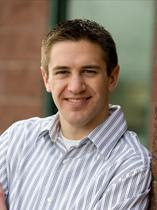I've had the entrepreneurial drive since I was a kid, so it's fun to finally be starting a "real" company. Although I'm still in the early stages, things are definitely looking promising.
My business idea has evolved to focus on the English tutoring niche. There are currently 1.1 billion people learning English, and that number is expected to be 2 billion in the next 10 to 15 years. Each year, people spend $50 billion to learn English. Simply put, the market is huge.
Most of the competition in this market offers tutoring by licensed tutors at an average rate of $20 to $40 per hour. I believe a ton of money is left on the table by neglecting those who are willing to pay for English help but cannot afford a professional tutor. In addition, most of the competition's offerings consist of lesson packages of 30-60 minutes at a time. What if a student or an individual wants only 10 minutes of on-demand English assistance on a particular topic?
Oovoh (pronounced EW-vo) will fill that need. Tutors will be ordinary individuals who will be briefly trained, tested and then selected (very similar to ChaCha's method of training, testing and selecting their guides). The tutors will then be required to complete three ten-minute tutoring sessions at no pay. If their ratings are positive, they will then be eligible to offer paid tutoring. As tutors complete certain "milestones" (based on ratings), they will be eligible for pay raises.
Because the tutors are not professional or licensed, the cost for students will be dramatically lower. Prices are anticipated to start at the per-minute equivalent of $10 per hour and will range up to $18 for more experienced (and highly-ranked) tutors. Additionally, students will be granted 15 free minutes at signup.
I believe Oovoh's concept is sound and the potential is huge. The road ahead is long and uncertain, but I believe there
is a road.
Rough homepage mockup #1
Rough homepage mockup #2
